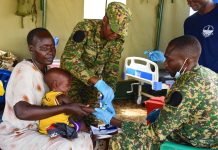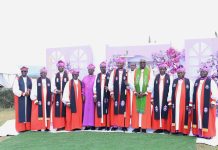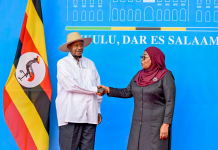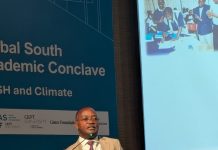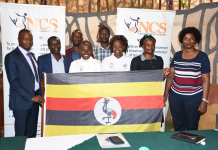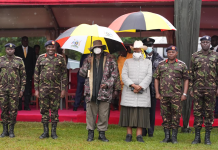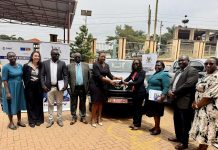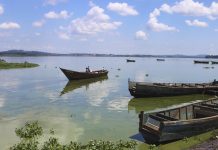The Uganda National Association of the Deaf (UNAD), an umbrella organization representing all Deaf people in Uganda, is commemorating the 18th edition of the International Week of Deaf People (IWDP) 2023, the International Day of Sign Language 2023, and the 50th anniversary of the Deaf Community.
This year’s theme, “Celebrating 50 years of the Struggle for Deaf People’s Human Rights: A Uganda where Deaf People Everywhere can sign Anywhere,” aligns with global advocacy efforts to raise awareness about the linguistic needs of the Deaf Community.
2023 marks exactly 50 years since the Deaf community in Uganda formally united to form a strong voice in their struggle for equity and rights. Right from the time the first group of Deaf rights advocates came together to establish the Uganda National Association of the Deaf (UNAD), their formation gave birth to the Deaf community’s unique linguistic identity, Ugandan Sign Language. It also laid the groundwork for inclusion and an array of cultural identities and norms that now define a strong community with a formal presence in over 110 Districts in Uganda through District Associations of the Deaf registered as branches of UNAD. These branches advance grassroots advocacy for the rights of Deaf people, who have become increasingly recognized within their communities over the past five decades.
UNAD was established by Deaf individuals themselves in 1973. According to the Uganda Bureau of Statistics national census in 2014, there were approximately 1,083,964 Deaf people in Uganda. UNAD’s vision is “Dignity for every deaf person,” and its mission is “Building capacities, promotion of Uganda sign language, and advocating for the rights of deaf people.”
For all stakeholders, the IWDP presents a fantastic opportunity to support inclusion as a means of achieving Agenda 2030 and Uganda’s Vision 2040. Sign languages are encouraged and recognized by the Constitution of Uganda, the People with Disability Act, and the United Nations Convention on the Rights of Persons with Disabilities, which states that Sign Language has the same status as spoken languages.
However, recent times have seen attempts by some individuals to undermine the importance of deaf people in teaching, promoting, and defending their natural Uganda Sign Language. These individuals have made it difficult for deaf people to take a lead in such activities. Uganda Sign Language is a natural language developed by deaf people and is structurally distinct from spoken languages but equal in status. It originated, developed, and evolved from deaf people themselves. Unfortunately, deaf people are often placed at the bottom in aspects of Uganda Sign Language development and training, which is a threat to their cultural and linguistic identity.
It’s important to reiterate that not every person who uses signs is automatically qualified to teach Uganda Sign Language or work as a Sign Language Interpreter. Sign Language Instructors/Teachers undergo professional development trainings, including pedagogical skills, curriculum and content delivery. Similarly, Sign Language Interpreters undergo professional development training in the interpretation profession, translating from voice to signs and signs to voice. These two disciplines, Sign Language Instructors/Teachers and Sign Language Interpreters, are entirely different with distinct professional skills and experience.
UNAD appreciates the Government of Uganda for creating an enabling environment through various legislations and policies. The Constitution of Uganda, the Communications Act, and the Persons with Disability Act recognize Uganda Sign Language as a language of deaf people and a means to equality, non-discrimination, accessibility, and full and effective participation and inclusion of deaf citizens in society. Part 2 of the Disability Act and Article 5.3 of the United Nations Convention on the Right of Persons with Disability (UNCRPD) recognize the obligation to provide reasonable accommodation as a means to eliminate discrimination towards deaf people. Furthermore, article 21 (b) of the UNCRPD mentions that States Parties must facilitate the use of sign languages. These legal and policy frameworks give grounds to deaf people for the right to a linguistic identity and full/equal representation in matters that affect their language.
UNAD is concerned that the Deaf community, through their representative Association, has been left out by some elements in the design and implementation of programs that affect them. These programs are mainly driven by people who place deaf persons at the bottom as passive recipients. This continued exclusion will render deaf people impoverished, vulnerable, powerless, and isolated.
UNAD and her membership strongly recommend that stakeholders adopt the following:
- Develop a Uganda Sign Language Bill and enact an Act of Parliament on Uganda Sign Language to protect the linguistic identity and cultural diversity of deaf people. Deaf people who are native users of Uganda Sign Language must be acknowledged and respected as the best teachers and role models of this language and culture.
- Consult UNAD in developing basic minimum standards for Sign Language Instruction and Uganda Sign Language Training. UNAD has been training professional Uganda Sign Language Instructors who are fully functional and very useful in Uganda Sign Language promotion and development.
- Ensure that Sign Language Interpreters are properly trained professionals, certified through a neutral mechanism that includes deaf people’s representation, and receive fair compensation. State and Non-State Actors are requested to work with recognized representative institutions during recruitment and appraisals for Sign Language Interpreters. In this case, the people’s representative Institutions are Uganda National Association of the Deaf (UNAD) and Uganda National Association of Sign Language Interpreters UNASLI.
- Stakeholders must actively consult UNAD when designing and implementing sign language-related programs and other accessibility measures for deaf people, as required by Article 4.3 of the UNCRPD.



